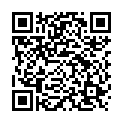|
|
|
| Module code: MBG21.M.44 |
|
3S (3 hours per week) |
|
3 |
| Semester: according to optional course list |
| Mandatory course: no |
Language of instruction:
German |
Assessment:
Course work
[updated 15.11.2021]
|
MBG21.M.44 Management and Professional Pedagogy in Health Care, Bachelor, ASPO 01.10.2021
, optional course, management
|
45 class hours (= 33.75 clock hours) over a 15-week period.
The total student study time is 90 hours (equivalent to 3 ECTS credits).
There are therefore 56.25 hours available for class preparation and follow-up work and exam preparation.
|
Recommended prerequisites (modules):
MBG21-1 Academic Methodologies and Study Skills I
MBG21-11 Healthcare Management II
MBG21-13 Health Care Management III
MBG21-17 Health Care Management IV
MBG21-5 Healthcare Management I
[updated 30.05.2024]
|
Recommended as prerequisite for:
|
Module coordinator:
Prof. Dr. Petra Riemer-Hommel |
Lecturer:
Prof. Dr. Petra Riemer-Hommel
[updated 30.05.2024]
|
Learning outcomes:
After successfully completing this module, students will have the following skills and competencies:
.
Knowledge and Comprehension:
Students will be able to describe the concept of risk in different contexts.
They will be able to differentiate between the steps in the risk process.
They will be able to compare methods for analyzing and controlling risks.
They will be able to describe and formulate practice-related risks for patient safety.
They will be able to identify approaches for dealing with risks.
The Use, Application, and Generation of Knowledge:
Students will be able to evaluate approaches for dealing with risks.
They will be able to develop solutions for patient participation.
Communication and Cooperation:
Students will be able to reflect on the importance of communication and teamwork in risk management.
Scientific Self-Concept/Professionalism:
Students will be able to reflect on their own actions critically and develop their skills independently.
[updated 15.11.2021]
|
Module content:
What is patient safety?
Causes of critical incidents/patient injuries
Systems theory
Patient participation
Safety culture
Team work
Communication
Learning from critical events
Patient safety measures
[updated 15.11.2021]
|
Teaching methods/Media:
Blended learning
[updated 15.11.2021]
|
Recommended or required reading:
Recommended literature will be announced at the beginning of the course.
[updated 15.11.2021]
|

